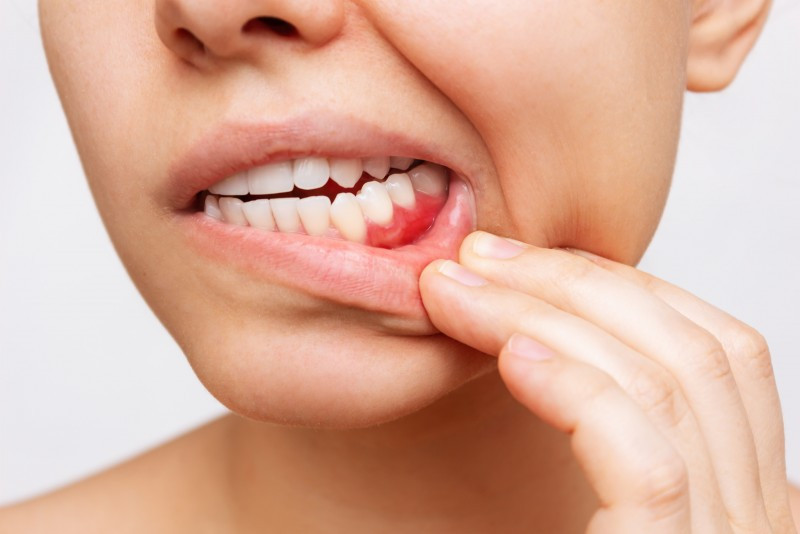Gum disease is an unwanted consequence of poor oral hygiene, among other factors. Plaque buildup and other oral hygiene factors contribute to its development. Among the measures you can take to prevent and mitigate gum disease is taking in nutrients that benefit your oral health and which can combat the disease.
What Exactly Is Gum Disease?
Gum disease is a condition that causes irritation and damage to the gums. Gingivitis is a mild form of gum disease, and is one of the precipitating factors that leads to periodontitis, which is a more serious gum affliction. These predominantly stem from plaque buildup, which can be avoided with good oral hygiene.
Plaque forms when starches and sugars from food mix with bacteria in the mouth, and it builds up on teeth. Gingivitis results from plaque buildup and can lead to inflammation and the excessive buildup of tartar, becoming periodontitis. After it develops, gum disease must usually be treated by a dentist in order to prevent further damage.
Symptoms of periodontitis include swollen and discolored gums, tenderness, bleeding in the gums, and more. Untreated, it can lead to tooth loss, due to degradation of bone. Worse yet, the bacteria which cause periodontitis can enter the bloodstream and cause other complications including respiratory disease.
Supplements for Preventing Periodontitis
A preventative approach is by far the best approach to gum disease. Oral hygiene, namely brushing and flossing, is key. Next to this would be the consistent use of nutrients that bolster your oral health. This is a sensical approach, because vitamins and nutrients affect bacteria and other bodily factors which influence the conditions of the gums.
Grape seed extract is known as an antioxidant that can help inflammation, but it has another use: preventing the colonization of bacteria in the mouth. The colonization of bacteria, and their interactions with food substances, is what comprises the plaque which accrues on teeth and gums. By reducing the flourishing of these bacteria, plaque buildup is hindered, and the risk of gum disease goes down.
Vitamin C intake has been shown to positively impact the gums. This is because vitamin C is important for the production of collagen, and the gums are made up of collagen, among other substances. Low levels of vitamin C are associated with an increased risk of periodontitis. Correspondingly, vitamin C supplementation has been shown to reduce the risk of gingivitis and reduce bleeding in those who already have it.
Zinc is a mineral which affects oral and gum health. The body needs sufficient zinc intake in order for the gums to be healthy. Studies show that low levels of zinc correspond with increased incidence of gum disease. It's also been shown that taking zinc supplements reduces plaque and improves gum health in children, and zinc could combat inflammation in the gums as well.
Folic acid plays a significant role in the healthy development of gum tissue. Appropriately, folic acid also helps prevent gum disease because it binds to endotoxins, which are byproducts of bacteria in the mouth, and renders them neutral. Folic acid is recommended for prevention and treatment of gum disease, and it could help prevent recurrences of gum disease as well.
CoQ10, short for Coenzyme Q10, has been shown to be helpful for those who already have gum disease. It can help reduce gum bleeding, and boost levels of antioxidant enzymes in those who have gum disease. CoQ10 can also aid in the medical treatment of periodontitis, by reducing gum inflammation during the treatment process.
If you or a family member are at risk of developing gum disease, or already have gum disease, then you should consider the vitamins and nutrients above for their ability to help. Talk to your healthcare provider before beginning a regimen with one of these supplements as you look to mitigate gum disease.

